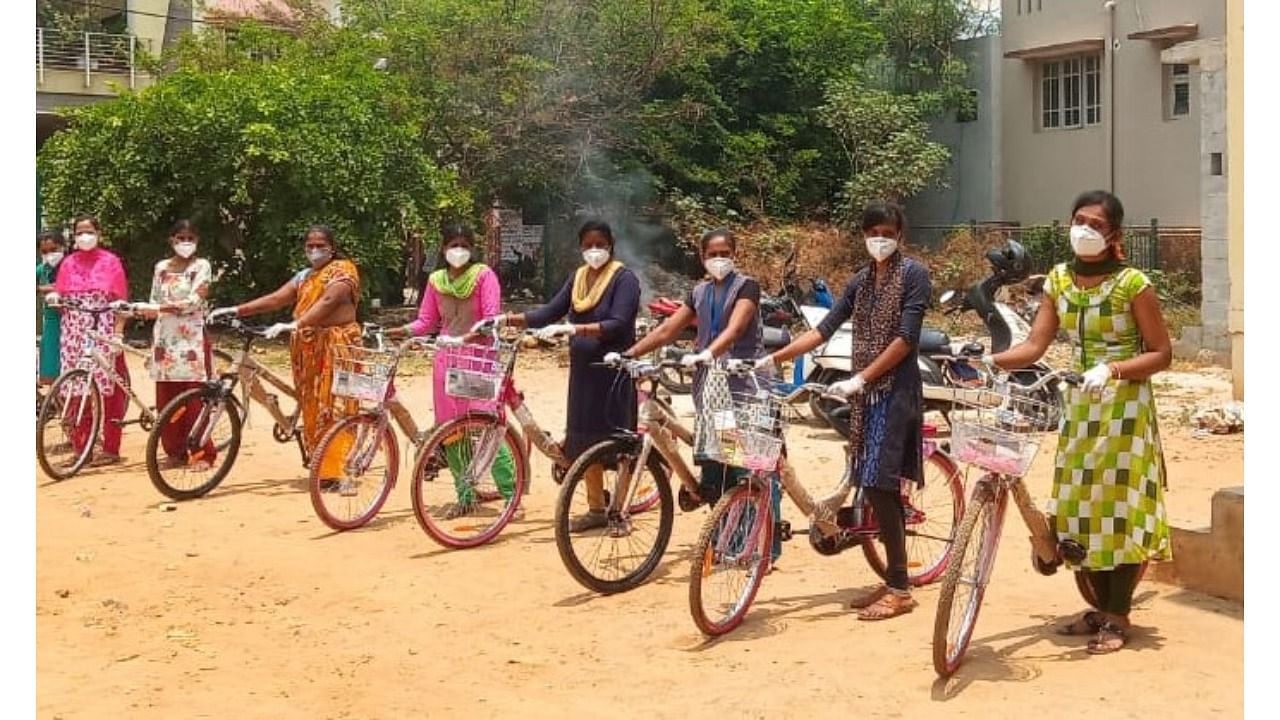
With the government’s efforts to popularise non-motorised vehicles hitting a roadblock, more than 1,000 women working in garment factories have offered to cycle to work to save money.
Though it originally began with a few garment workers who wanted to avoid paying hefty monthly sums for transport, the Garment Labours Union (GLU) has now recognised cycling for its potential to help thousands.
Greenpeace India is crowdsourcing funds to provide bicycles and help them achieve a higher degree of liberty, besides encouraging sustainable transport.
GLU president Rukmini V P said 40 to 50 workers from 20 garment factories have expressed an interest to cycle to work. “Almost all the workers pay anywhere between Rs 600 to Rs 900 per month for transport services. In some cases, lack of first- and last-mile connectivity makes it even costlier,” she said.
With the onset of the Covid-19 pandemic, workers are finding it harder to handle such expenses, especially since their earnings have remained between Rs 9,000 to Rs 12,500. “We held a meeting at the beginning of this year to discuss measures to cut cost and many expressed willingness to cycle to work to save travel expenses. As the news spread, more and more numbers have asked us to help them get a bicycle,” she said.
With 1,000 workers committing to cycle, Greenpeace India jumped into the project.
“On a pilot basis, we have given six new bicycles over the last few months. There are one lakh garment workers in Bengaluru and the number of requests has encouraged us to launch the fundraising campaign. We hope to provide 5,000 bicycles and plan to approach different entities, including the government,” said Avinash Chanchal, senior climate campaigner at Greenpeace India.
Rukmini believes that the garment workers can potentially begin a movement.
“These are poor women ready to face physical hardships to save money. Their contribution towards sustainability will encourage others to take up cycling,” she said, adding that the government should provide infrastructure that supports cycling instead of flyovers.
Annapurna, a garment worker from Doddabidarakallu who commutes to a factory in Peenya Industrial Area, said she has been cycling for the last two months.
“After the first two weeks, I got used to the physical strain. I am part of the skeletal staff working during the lockdown and I feel the roads have more space for bicycles now compared to April,” she said.